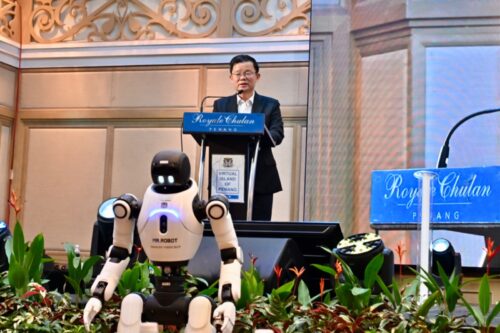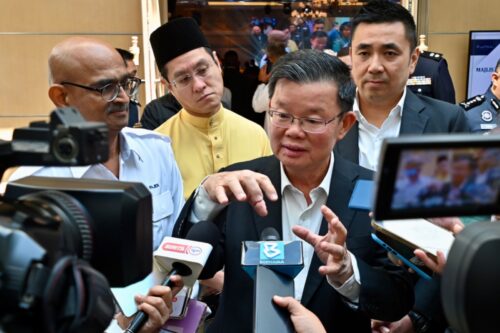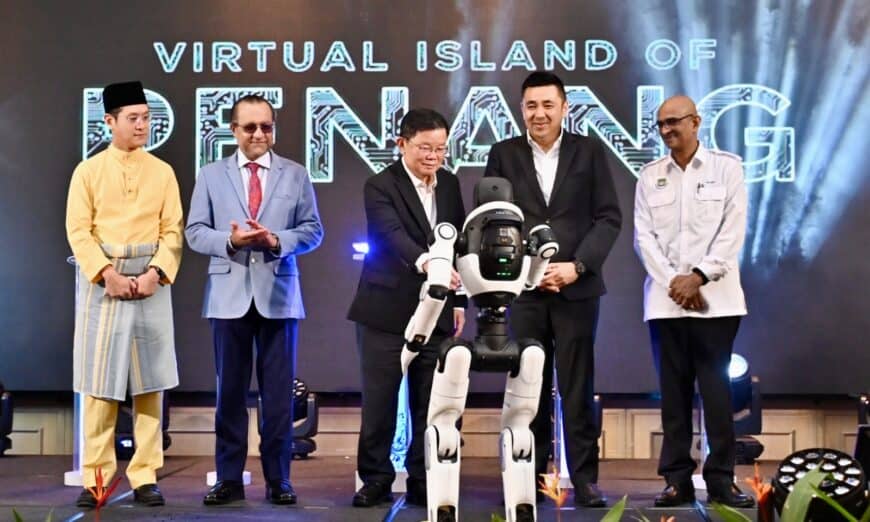PENANG has marked another milestone in its digitalisation journey with the official launch of the Virtual Island of Penang (VIP), a flagship initiative by the Penang Island City Council (MBPP) aimed at enhancing public service delivery and placing the state firmly on track to becoming a smart city.
The system, comprising 10 integrated smart modules, was developed progressively over the past years through internal expertise and external collaborations.
Some of the modules are the first of their kind in Malaysia, including geotechnical slope monitoring, tree inventory and inspection, as well as weather and disaster management.

MBPP mayor Datuk A. Rajendran said the VIP initiative reflects the council’s long-term vision to address urban challenges through digital transformation.
“Today, we are witnessing the official launch of the Virtual Island of Penang, an initiative that enhances MBPP’s service delivery to the people and charts our path towards becoming a smart city.
“Urbanisation in Malaysia has reached nearly 80%, and in Penang, 93% of residents live in urban areas.
“This brings with it challenges such as congestion, housing demand, and pressure on resources and sustainability.
“Every city faces its own issues, and in this context, digitalisation is no longer a choice but a necessity,” he said in his speech.

Rajendran also highlighted that Penang’s digital journey began more than 15 years ago with the introduction of the Geographical Information System (GIS), which laid the foundation for data-driven urban management.
Over the years, MBPP assessed and adopted the necessary digital transformation modules, gradually building them up to benefit Penangites.
Among the pioneering systems are the Geotechnical Slope Monitoring and Control Module, designed to detect soil and slope movements, enabling predictive intervention before incidents occur.
Secondly, the Tree Inventory and Inspection Module, powered by remote sensing technology with over 80% accuracy.
It was learned that this AI-assisted system analyses tree health and determines whether trees can be saved, eliminating the need for physical checks.
Then, we have the Weather Monitoring and Disaster Management Module, which provides real-time disaster alerts and supports emergency response planning.

“We have integrated satellite imagery, LiDAR (Light Detection and Ranging), and predictive as well as generative AI to make these modules more effective, efficient, and interactive with real-time information. This allows MBPP to respond quickly with solutions,” Rajendran explained.
He also revealed that efforts are underway to enhance CCTV surveillance systems with advanced features, including speed detection, vehicle type analysis, volume tracking, and number plate recognition.
While not all modules are accessible to the public due to security and technical considerations, certain features such as disaster monitoring and the location of automated external defibrillators (AEDs) across the island are available via Pearl Apps.
“The Virtual Island of Penang is a continuous journey. The modules we started in 2023 are being enhanced daily to provide better solutions for Penangites,” Rajendran said.
To date, MBPP has invested approximately RM30 million into the development of smart city initiatives since 2020.
Meanwhile, Chief Minister Chow Kon Yeow, who officiated the launch, lauded MBPP for spearheading the initiative and called for greater support to replicate such digital transformation efforts across all local councils in Malaysia.
“The GIS and satellite sensing data allow us to build modules that directly address real needs, whether it is emergency response, disaster management, or improving service delivery.
“With 11 use cases already developed, this platform has the potential to expand further to serve the people more effectively,” Chow said.
Relatively, he also emphasised that if MBPP has spent RM30 million to realise this initiative, then it was time the Federal Government allocated funding for all local councils.
“Local councils are essential service providers, and digitalisation will ensure more efficient management, revenue collection, and public services,” he said.
He added that the adoption of digital tools like the VIP will reduce reliance on traditional methods, making cities more sustainable, resilient, and responsive to people’s needs.
Also present at the ceremony were Deputy Chief Minister II Jagdeep Singh Deo, state Local Government, Town and Country Planning Committee chairman Jason H’ng Mooi Lye, and state Infrastructure, Transport and Digital Committee chairman Zairil Khir Johari.
Story by Kevin Vimal
Pix by Law Suun Ting
Video by Darwina Mohd Daud

